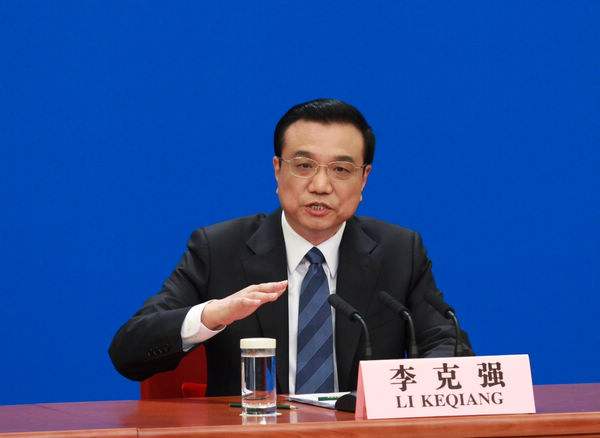李克強(qiáng)總理:我在報紙上看到,部分媒體對中國的開放有這樣那樣的議論,所以我多說兩句。我們的努力方向是要使13億人的市場逐步成為中外企業(yè)、各類所有制企業(yè)都可以公平競爭的市場,給中國消費(fèi)者以更多的選擇,促使中國產(chǎn)品和服務(wù)升級,促進(jìn)經(jīng)濟(jì)向高質(zhì)量的方向發(fā)展。
Premier Li: I can see from some media reports that opinions are divided on market openness in China. Let me make this clear. Our goal is to gradually create a level playing field in a market of 1.3 billion consumers for both Chinese and foreign-invested enterprises of all types of ownership. This will provide Chinese consumers with more options and incentivize the upgrading of Chinese products and services and that of the overall economy.

當(dāng)然,中國的開放是一個漸進(jìn)的過程,有些當(dāng)時看起來并不起眼的開放舉措,幾年后回過頭來看,可能成效令人驚訝。比如說5年前我們簡化了因私護(hù)照辦理和出境的手續(xù),結(jié)果出境人次從當(dāng)年的7000多萬增加到去年的1億3千多萬,而且其中多數(shù)都是去旅游和消費(fèi)。所以看中國的開放,不僅要看細(xì)節(jié)、領(lǐng)域,更要看長遠(yuǎn)、全景。
This said, China's opening-up will be an incremental process. In retrospect, a modest step of opening-up may sometimes yield enormous benefits. For example, five years ago we simplified the procedure for getting passports and traveling overseas. As a result, the number of outbound trips made by Chinese citizens surged from 70 million to 130 million last year, most of them being tourists and shoppers. In making sense of China's opening-up, one needs to pay attention to the concrete steps in specific areas, but more importantly take a panoramic and long-term view.











